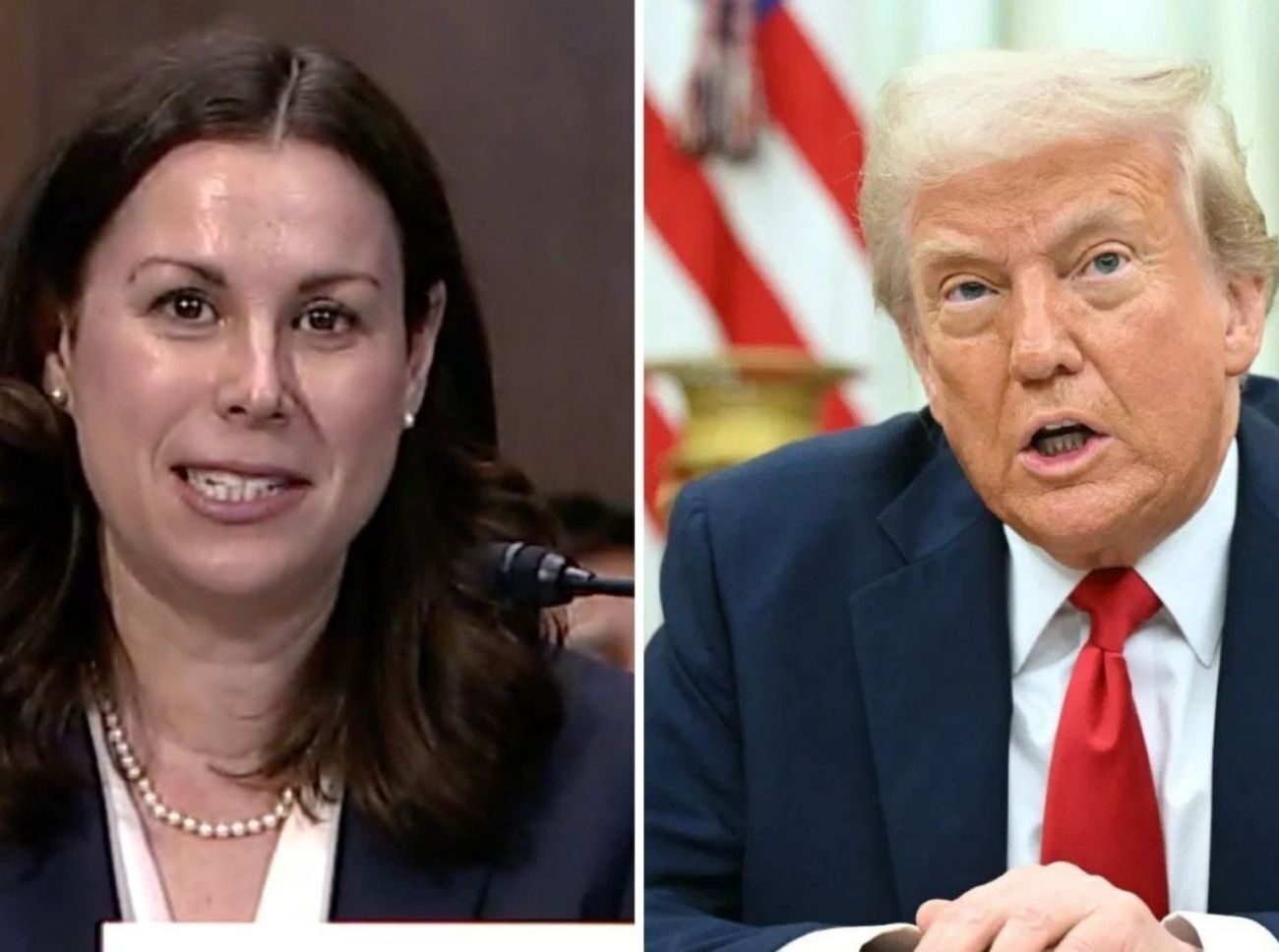In a dramatic escalation of political and legal tensions, a Biden-appointed federal judge has given the Trump administration just 48 hours to justify its deployment of National Guard troops to Chicago. The order, issued Monday night by U.S. District Judge April Perry, signals a growing confrontation between federal authority and Democratic-led local governments, with potential implications for presidential power and the use of the Insurrection Act in domestic law enforcement.
The deployment comes as part of President Donald Trump’s ongoing efforts to combat gang violence and enforce federal immigration laws in cities that have restricted cooperation with federal authorities, commonly referred to as “sanctuary cities.” The legal challenge, led by Illinois Attorney General Kwame Raoul and joined by Governor J.B. Pritzker and Chicago Mayor Brandon Johnson, accuses the administration of using the military presence as political leverage against Democratic-led jurisdictions.
Judge Perry, appointed by President Joe Biden in 2022, set a deadline of midnight Wednesday for the Trump administration to respond to the lawsuit. A full hearing is scheduled for Thursday afternoon, where both sides will present their arguments. While the judge declined to issue a temporary restraining order, which would have halted the troop deployment, the case highlights the tension between federal authority and state sovereignty in situations involving domestic military deployment.
Federal officials confirmed that around 200 Texas National Guard troops are expected to arrive in Chicago by Wednesday morning to assist law enforcement operations in areas identified as high-crime neighborhoods. The deployment, according to the White House, is temporary and strictly focused on supporting local authorities, particularly in dealing with violent crime and enforcing immigration laws where local cooperation has been limited.
The lawsuit filed by Illinois officials argues that the deployment constitutes “an unlawful act of political retaliation” against cities governed by Democrats. The filing asserts:
“The American people should not live under the threat of occupation by the United States military simply because their city leadership has fallen out of favor with a president.”
The legal challenge emphasizes that Chicago is not experiencing a formal insurrection or rebellion, a requirement under the Insurrection Act, and accuses the administration of exploiting public safety concerns for political purposes.
Trump Defends Troop Deployment
President Trump, however, defended his actions as legal and necessary to protect public safety. Speaking to reporters, Trump highlighted ongoing violence in Chicago, particularly incidents involving gang activity and confrontations with federal immigration agents.
“We have an Insurrection Act for a reason,” Trump said. “If people are being killed and courts or governors are holding us up, I won’t hesitate to use it.”
The president framed the deployment as a protective measure for federal agents operating in high-risk environments, particularly around Immigration and Customs Enforcement (ICE) facilities, where clashes with protesters have been reported.
Homeland Security Secretary Kristi Noem described the situation in Chicago as “a war zone,” citing incidents where federal officers were targeted by mobs while performing routine law enforcement operations. Noem argued that federal intervention was necessary due to the inability or unwillingness of state and local authorities to control escalating violence.
“Federal law enforcement is stepping in because Illinois officials refuse to act,” Noem said.
Illinois Officials Push Back
Illinois leaders have strongly condemned the deployment, accusing the Trump administration of using military force as a political tool. Governor Pritzker characterized the move as a deliberate escalation designed to create fear and justify further federal intervention.
“This administration is following a playbook — cause chaos, create fear, and then claim justification to send in troops,” Pritzker said. “We will not allow Illinois to be used as a prop for Donald Trump’s campaign.”
Attorney General Raoul echoed these concerns, arguing that the president’s actions are unconstitutional in the absence of evidence of rebellion or insurrection.
“There is no insurrection in Chicago,” Raoul said. “There is only a president abusing his power.”
The political standoff has been mirrored on the streets, where federal agents have already been involved in confrontations with demonstrators. On Monday night, federal officers fired pepper balls and tear gas to disperse protesters outside an ICE facility in Broadview, arresting more than a dozen individuals who blocked access roads.
Pritzker accused the federal agents of “thuggery” and “excessive force,” alleging that some arrests included American citizens who were mistakenly detained. Noem, however, dismissed these claims as unfounded and politically motivated.
“Grow up and start protecting the people of your own state,” she said.
The National Guard and the Insurrection Act
The deployment of National Guard troops under the Insurrection Act has been a rare and controversial measure in modern U.S. history. Historically, the act has allowed the president to use federal troops domestically to suppress insurrections, enforce federal law, and protect civil rights. However, its use in Chicago — absent any evidence of organized rebellion — has raised questions among legal scholars about the limits of presidential power.
“If the court limits Trump’s authority here, it could restrict future presidents from deploying federal troops domestically,” said Harvard Law professor Alan Dershowitz.
“If it upholds the move, it reaffirms very broad executive discretion under the Insurrection Act.”
This legal debate comes as President Trump maintains that the deployment is fully within his Article II powers, which allow the executive branch to ensure federal law is faithfully executed. Trump’s team is expected to argue that the National Guard’s presence is temporary, measured, and aimed at enhancing public safety rather than serving political objectives.
Escalating Tensions on the Ground
The situation in Chicago continues to be tense, with reports of violent incidents near federal facilities. Both federal and local authorities are preparing for potential clashes as the National Guard arrives. These developments highlight the broader national debate over law enforcement, immigration policy, and federal intervention in local matters.
In addition to legal battles, the deployment has become a flashpoint for political discourse. Democratic leaders have accused Trump of using fear and militarization for political gain, while the administration argues that federal involvement is necessary to protect citizens and law enforcement personnel from escalating violence.
The controversy also reflects ongoing national debates about sanctuary cities, immigration enforcement, and the role of federal power in areas where local governments limit cooperation with federal authorities. Chicago, as one of the largest cities with sanctuary policies, has become a symbol of this conflict.
Political Implications
The showdown has significant political ramifications. Trump has framed the deployment as part of his law-and-order agenda, emphasizing support for law enforcement and public safety. For Democratic leaders, resisting the deployment is both a legal and symbolic effort to assert local authority and push back against what they describe as executive overreach.
The 48-hour deadline from Judge Perry adds urgency, creating a high-stakes legal environment. If the court ultimately sides with Trump, it could set a precedent expanding presidential authority in domestic troop deployments. Conversely, a ruling against the administration could limit the use of federal forces in future domestic law enforcement scenarios, potentially redefining the balance of power between federal and state governments.
Reactions from Federal and State Officials
White House Press Secretary Karoline Leavitt reiterated that the operation is focused on public safety and emphasized that Trump’s decision is not politically motivated.
“This is about safety, not politics,” she said. “President Trump will always stand with law enforcement and the American people.”
Meanwhile, Illinois officials remain vocal in their criticism. The state argues that the deployment is unnecessary and risks escalating violence rather than calming tensions. Legal experts anticipate that the arguments before Judge Perry will center on whether the circumstances in Chicago meet the legal definition of an insurrection or rebellion under federal law.
Looking Ahead
As the Thursday hearing approaches, both sides are preparing extensive legal arguments. The Trump administration will likely present evidence of crime rates, gang activity, and threats to federal officers to justify the deployment under the Insurrection Act. Illinois officials, on the other hand, will emphasize the lack of insurrection and focus on the potential abuse of executive power.
Observers across the country are watching closely, as the case may set lasting precedent for presidential authority in domestic troop deployment and the interplay between federal and state powers. Constitutional scholars, law enforcement officials, and political analysts agree that the outcome will have implications far beyond Chicago, influencing future debates over executive authority and local autonomy.
Despite the mounting legal and political pressure, Trump has indicated he will not reverse course.
“We’re going to keep Chicago safe,” he told reporters late Tuesday. “They can sue all they want — we’re enforcing the law and protecting Americans.”
The next 48 hours will be critical, not only for the immediate situation in Chicago but also for the broader question of presidential authority in domestic law enforcement. The case underscores the high stakes involved when federal power intersects with local governance, particularly in politically charged cities.
With federal troops poised to arrive, legal deadlines approaching, and political rhetoric intensifying, Chicago has become the center of a national debate over public safety, immigration enforcement, and executive power. Citizens, officials, and legal observers alike are awaiting Judge Perry’s ruling and the upcoming hearing, which may define the limits of presidential authority for years to come.

Emily Johnson is a critically acclaimed essayist and novelist known for her thought-provoking works centered on feminism, women’s rights, and modern relationships. Born and raised in Portland, Oregon, Emily grew up with a deep love of books, often spending her afternoons at her local library. She went on to study literature and gender studies at UCLA, where she became deeply involved in activism and began publishing essays in campus journals. Her debut essay collection, Voices Unbound, struck a chord with readers nationwide for its fearless exploration of gender dynamics, identity, and the challenges faced by women in contemporary society. Emily later transitioned into fiction, writing novels that balance compelling storytelling with social commentary. Her protagonists are often strong, multidimensional women navigating love, ambition, and the struggles of everyday life, making her a favorite among readers who crave authentic, relatable narratives. Critics praise her ability to merge personal intimacy with universal themes. Off the page, Emily is an advocate for women in publishing, leading workshops that encourage young female writers to embrace their voices. She lives in Seattle with her partner and two rescue cats, where she continues to write, teach, and inspire a new generation of storytellers.









